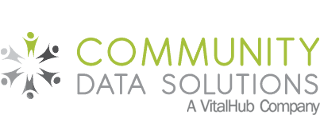
15 Steps to The Right CRM for your Community Services Organisation
Our organisation has grown out of the Not-for-Profit sector, and we have worked extensively over the last four years to assist agencies across Australia sort through their data management issues. During our consultations we hear many horror stories of Not-for-Profit organisations purchasing expensive and incompatible Client Relationship Management (CRM) products and services.
There are very few software providers in Australia whom focus on Not-for-Profit frontline services as their primary market. Traditionally CRM software products for the Community Services sector focus on the ‘promotions and marketing’ areas of these organisations, ignoring the other vital functions of the community services organisations.
For this reason Community Data Solutions has put together a list of 15 tips to help organisations select a CRM software provider for their community services frontline client work.
- Involve Key Staff in the CRM Planning Process
Frontline staff are usually the main users of the CRM system, therefore their compliance and support will be vital to it’s success.
- Beware Software Experts without Community Services background
To ensure successful CRM system implementation, involve people who have good understanding of your organisation’s workflow, and the community services sector reporting, and funding requirements.
- Confirm Supplier Dedication to the Australian Community Services Sector
Some software suppliers claim their software is tailored for the Australian Community Services sector. Verify these claims by viewing their website, and social media pages to conduct your own evaluation on their primary market; if community services appears to be a secondary market, this should raise some concerns.
- Be Clear on Your System Specifications
Workflow diagrams, standard reports, current internal processes and functionality features are all necessary considerations for your CRM system. Developing these with staff at variety of levels of your organisation will assist greatly in the design, and eventual choice of systems.
- Request a Demonstration
A demonstration will allow you to see how the system works and view sample reports. It will also provide you with an opportunity to discuss the pricing structure, and any functionality concerns. Ensure a of selection relevant staff who will use the system can also attend.
- Consider a Pilot Project
Take the time to work with a pilot of your CRM software, or select a department of your organisation to trial a CRM, so you do not over commit to a project beyond both your agency’s capacity to deliver and the software companies capacity to deliver.
- Find out the Implementation Rate
Check your software supplier’s referees and ask about implementation rates. (ie. Of those customers who sign a contract with a database software provider, how many of those customers get an operational database?)
- Check Australian Government Reporting Compliance
Successful Community Services CRM software solutions are built by suppliers familiar with Australian Government reporting requirements. Ask your supplier about their experience in meeting reporting requirements for both Commonwealth and State Governments.
- Confirm Data Security Compliance
Data security industry standards should apply to all data being stored by your software supplier. Ensure you have written confirmation of the supplier’s adherence to these standards, in particular the Australian Privacy Principles.
- Scrutinise Attitudes to Client Confidentiality
As client confidentiality is paramount in the Community Services sector, ask the software supplier about their confidentiality credentials, and whether they have signed up to the National Privacy Principles.
- Verify All Data is Stored in Australia
Some software suppliers will store your data in overseas data centres, which are subject to international laws that are less stringent than Australian laws that safeguard privacy. To avoid this ensure data is stored in Australia and make sure the agreement specifies you being notified if there is a change to this arrangement.
- Check Unscheduled Outage Performance Rates
Ask about the software supplier’s unscheduled outage performances over the last three years, and what processes and systems they have in place to reduce these occurrences.
- Beware of Upfront Payment Models
Do not pay large fees upfront for a system that is being built from the ground up, or one that requires your own organisation to modify the software. This approach is fraught with problems, and provides the conditions for failed projects.
- Speak to Referees
To gauge how many other Australian NFPs have confidence in a software supplier, request testimonials, and ask to speak to referees (who offer similar services to your organisation) about their experience using with the database, and the software supplier. Ask to speak to referees who have similar systems to that which you require.
- Keep After-Sales Support Costs in Check
Ensure you know what after-sales support is included and if there any additional costs to access that support. Good software suppliers should also provide user guides to assist your organisation resolve simple enquiries without outside assistance.
Call me today on 1800 503 981 to find out more about how to choose the best CRM system for your organisation.

Recent Comments